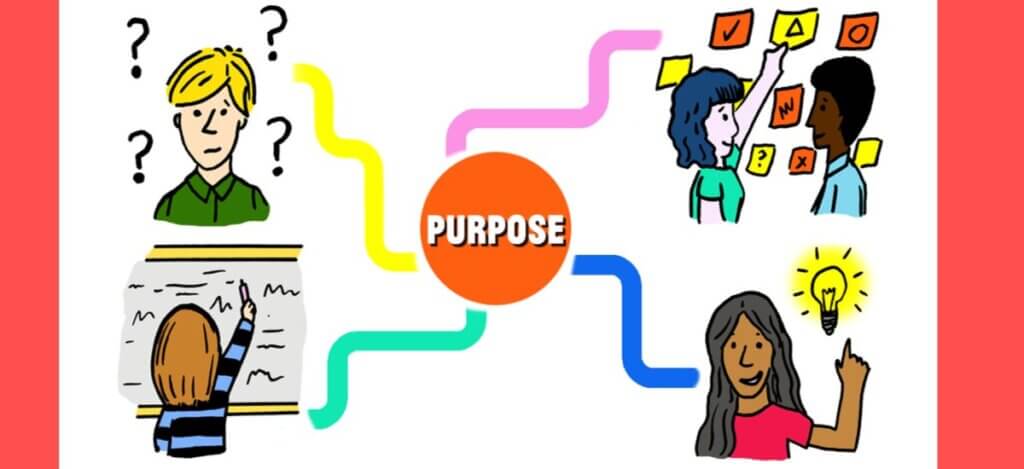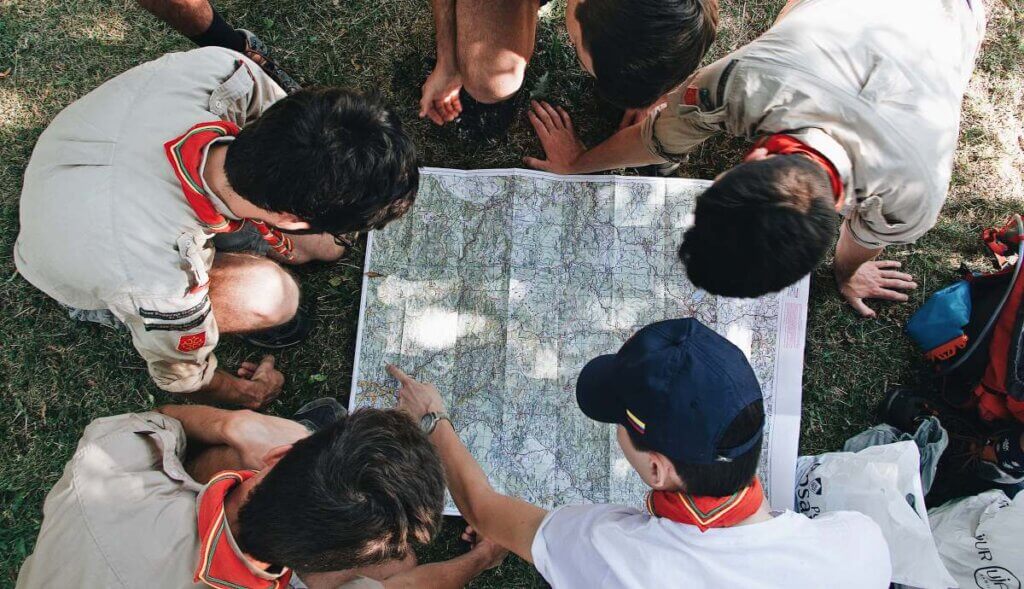6 . A Team Purpose Workshop
How to Define and Facilitate One for Your Team

By Monica Viggars
With a lot of factors changing due to the Covid-19 pandemic, leaders are looking for ways to re-engage their team as they navigate the continued uncertainty. An effective way to provide clarity is by defining a purpose that a team can use as an anchor amid all the change.
When it is well understood and used, purpose becomes a powerful tool:
- It helps prioritize –a team with a clear purpose can identify what they should take one and what should not be on their plate.
- It fosters stability –a strong purpose provides a goal to focus on, a greater sense of meaning and the confidence to navigate uncertainty.
- It raises resilience –a motivating purpose raises feelings of self-efficacy and the energy needed to keep moving forward through moments of crisis.
- It boosts innovation –with clarity around team’s responsibilities and available resources, people can focus their attention on creating new things instead of using their energy trying to understand their current situation.
- It fosters self-organization –a solid purpose provides alignment, clarifies what is within the team’s control moment-to-moment and provides autonomy to make decisions under that realm.
Agreeing a purpose gives your team a reason for being and gives their work greater meaning than simply doing what they do. Here is how to define one for your team…
What is a team purpose?
Purpose, quite literally, is “the reason for which something is done or created or for which something exists.”
In the context of a product team, we can understand this as the ‘why’ behind the work being done and the reason that the team was formed in the first place.
Purpose is sometimes confused with the team vision or strategy — but it is more like the mission. So, if vision is the end goal and strategy is how you are going to get there, then purpose is the ‘why’ you are even aiming for the end goal in the first place.
Why purpose matters
Often, I see teams who are dutifully going about product development work with little idea of why they are doing it — it is not much fun coming to work every day without a sense of purpose!
Companies normally have mission or purpose statements but in my experience it is also important for teams to have their own individual purposes defined — it helps people to understand how what they do fits into the bigger picture and gives them a sense of meaning.
Teams who are galvanized around a purpose (as well as a well-crafted OKR or goal) have a higher chance of working well together to deliver their team outcomes, at least from what I have observed!
Facilitating a Team Purpose Workshop
1. Explain the ‘what’, ‘why’ and ‘how’ (5 minutes)
In every workshop you will find participants who will be hesitant to take part unless they are told why they are there, what you will be doing and what the end result will be (and rightly so!). With this in mind, it is beneficial to start any workshop with the ‘what’, ‘why’ and ‘how’ to save time and head off these sorts of questions:
- What = working together to define a team purpose
- Why = to have an agreed understanding for the reason our team exists and why we are doing what we do
- How = a one-hour workshop with the following agenda

2. Get your team warmed up (10 minutes)
To get your team in the mood for thinking about purpose I like to pose a few questions at the beginning of the workshop and ask people to take notes — these will come in handy later on when it comes to writing purpose statements:
- What is our job as a team?
- What’s our goal? How do we know when we have done our job?
- What benefit are we bringing to the company and our customers/users?
3. Use some examples (5 minutes)
Giving your team examples will help to guide their thinking when it comes to writing their own purpose statements. I like to print examples out and stick them on the walls so that they can be referred to throughout the workshop.
The examples can be team purpose examples from other teams in your organization or company-level examples (or a mixture of the two) — Google, Amazon, Facebook and other big tech companies have some well-crafted purpose statements:
- Google: “To organize the world’s information and make it universally accessible and useful.”
- Amazon: “The Earth’s most customer-centric company, where customers can find and discover anything they might want to buy online.”
- Facebook: “To give people the power to share and make the world more open and connected.”
4. Review your company’s high-level goals or OKRs (10 minutes)
A big part of understanding a team’s reason for being is looking at the bigger picture and where your team fits in. The work that your team does may contribute to one or more company level OKRs or goals, so it’s worth having those handy as they will be useful in the next section. I also like to print these out and stick them on the walls so that they are front of mind.
5. Write some individual purpose statements (10 minutes)
Having thought about the warmup questions and reviewed purpose statement examples and company OKRs / goals, it’s time for your team to try and craft their own individual purpose statement for the team. Give them 10 minutes and ask them to write one per person.
6. Combine the individual purpose statements (20 minutes)
Now comes the fun part! You should have a set of team purpose statements, one for each person in the team. The task now is for your team to work together to combine their individual purpose statements into one agreed statement for the team. This agreed purpose statement should be no more than 20 words and they have 20 minutes to complete the task.
Good luck and let me know how it goes if you decide to try this out with your team!
STEPS
- Explain the ‘what’, ‘why’ and ‘how’
- Get your team warmed up
- Use some examples
- Review your company’s high-level goals or OKRs
- Write some individual purpose statements
- Combine the individual purpose statements
I am Monica Viggars and these are my agile-thoughts
2021 © Robertsbridge, East Sussex, UNITED KINGDOM by Monica Viggars

Monica Viggars is a Product Coach with over 15 years of experience working in product and tech.
A Product Manager in a past life, Monica now enjoys helping product teams to improve their ways of working and best practices as well as supporting companies on their journey to becoming more product-led.
When not writing or product coaching, Monica enjoys travelling (when there’s not a pandemic happening!), arts and crafts and baking cakes.
DID YOU LIKE IT?
